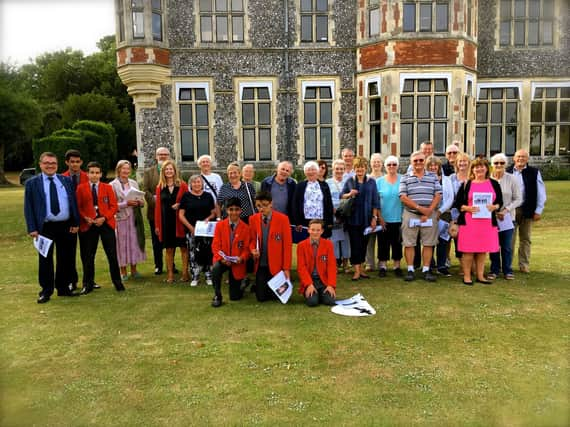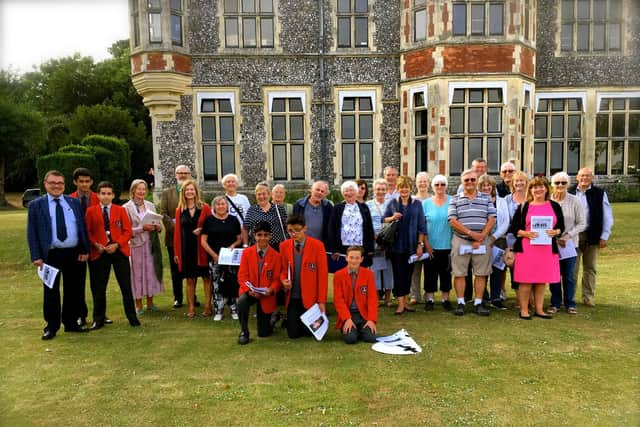Sompting Abbotts pupils teach historians about school's colourful past


The performance took place during a visit to Sompting Abbotts Preparatory School by the Lancing & Sompting Pastfinders.
Headmaster Stuart Douch said: “We wanted to enable the history group to visualise the school as a Saxon manor. Our school is packed with history.
Advertisement
Hide AdAdvertisement
Hide Ad“The Roman road from Chichester to Brighton runs right through the school parkland and is located in the area the Saxons called ‘Sultinges’, the land of the swamp-dwellers, due to its marshy grounds.”


He and the pupils led the party of 25 history enthusiasts on a fascinating time-travel tour of the school and grounds which began with Roman times.
They also all examined the remains of the original Sompting Manor, dating from the 17th century, which exist as a ruin in the school grounds.
“To be able to use our school to illustrate the events of British history to our pupils is a wonderful asset,” said Mr Douch. “Our school is part of living history.”
Advertisement
Hide AdAdvertisement
Hide AdLancing & Sompting Pastfinders member Eileen Colwell said: “We had the most perfect evening learning about Saxon warriors – brilliantly enacted by the pupils – and discovering the remarkable history of Sompting Abbotts.”
Sompting Abbotts was known as Sompting Manor until 1066 and the Norman invasion when it fell into the hands of the Abbey of Fécamp.
After Henry VIII’s dissolution of the monasteries, Sompting Abbotts was granted to Thomas Howard, Duke of Norfolk.
The Earl of Arundel and a succession of yeoman families then owned it.
Advertisement
Hide AdAdvertisement
Hide AdIt was also the scene of a royal sleepover. The Princess of Wales, Caroline of Brunswick, wife of King George IV, stayed at Sompting Abbotts in 1814.
Today, the school is an imposing Neo-Gothic building which stands high on a hill on the South Downs overlooking the British Channel.
Its present incarnation was re-built using stone from the original Sompting Manor in 1856 by its then owner Reverend P.G. Croft.
He commissioned it to be designed by the renowned architect Phillip Charles Hardwick, responsible for the Great Hall of Euston Station.
Advertisement
Hide AdAdvertisement
Hide AdHeadmaster Stuart Douch said: “We so enjoyed having the Lancing & Sompting Pastfinders visit us. The school was especially delighted to have in attendance Mike Tristram, managing trustee of the Sompting Estate.
“He is a direct descendant of Rev Croft who built our beautiful school building. It was the first time Mike had been back in many years and he said it brought back special memories.”
During the tour of the Sompting Abbotts mansion as it is today, the group learned that up until the 1920s, it served as a manor and had a staff retinue of at least 20, including an estate manager, cooks, chambermaids, groundsmen, butler, stableboys and gamekeepers.
Mr Douch said: “We took the group on a Downton Abbey-esque exploration of the school so they got to see the servant bells that still remain and the old servant quarters, which are now classrooms.”
Advertisement
Hide AdAdvertisement
Hide AdLancing & Sompting Pastfinders’ member Robert Brown said: “Local people can’t help but notice this stunning landmark as they pass along the A27, seated on the edge of the downs and overlooking the sea.
“Not many likely have the opportunity of a conducted tour of its mansion and park. We were made very welcome and were all so impressed with the successful preservation and conservation in action.
“The location’s thousand-year-plus history was really brought to life for us by headmaster Stuart Douch and the pupils.”
---